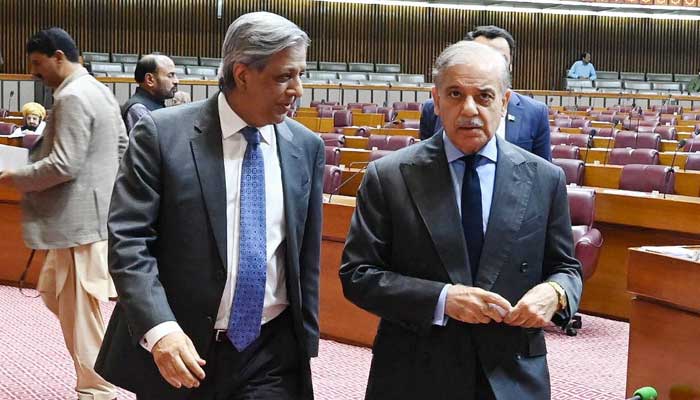One amendment after another
A court that withstood dictatorships will be swept away by political parties that gave 18th Amendment for judicial independence
November 14, 2025

By the time this piece is published, Pakistan stands to lose a Supreme Court and any modicum of an independent judiciary.
Justice Yahya Afridi shall be the last chief justice of the Supreme Court of Pakistan as we once knew it. A court that has withstood dictatorships, martial law and democratic breakdowns will be swept away by the same political parties that gave us the 18th Amendment, guaranteeing an independent judiciary.
Pakistan's judiciary has not exactly crowned itself in glory over the past decades, with names synonymous with judicial overreach. But as wrong as those actions were, the remedy now proposed is fatal: to render one court irrelevant and another compromised.
The judges in whose name this revenge is being exacted will feel no pain; it is the people of Pakistan who will bear the consequences for the foreseeable future.
A people deemed unnecessary, superfluous even, in the framing of this constitutional amendment. Hardly surprising when a parliament of questionable legitimacy rushes to consolidate control over any form of judicial accountability. That anxiety forms the backdrop to the 26th and 27th amendments.
The government's stump speech insists these changes are needed to reduce case backlogs. Yet, only about 2-3% of Pakistan's pending cases are before the Supreme Court. The rest languish before the lower courts of whose reform we hear neither sight nor sound. Only courts that ask difficult questions are prescribed constitutional amendments.
A constitutional court is an alien idea being shoehorned into our legal system from civil law jurisdictions. Ours is a common law country, with the jurisdiction of the courts unified.
A constitutional question can be raised in any case, which means the 27th Amendment now asks us to parse through each case, figure out where jurisdiction lies and then ricochet between the two parallel courts, figuring out where litigation is supposed to occur. Litigants will now enjoy a fractured judicial hierarchy that serves nobody but the current executive.
This is not speculation; the disastrous "constitutional bench" experiment of the past year has already shown us this jurisdictional chaos. Cases classification has caused innumerable migraines for litigants in the Supreme Court — now, expect the pain to endure.
The Federal Constitutional Court will begin its journey by purging another legacy of our common law system: the doctrine of precedent. The 27th Amendment guarantees that it starts out unbound and unchecked by the prior precedent of this country built since its inception. No precedent of the Supreme Court will be binding, especially not ones that say you can strike down constitutional amendments.
There is another constitutional Rubicon that is crossed: the first batch of constitutional court judges is to be appointed directly by the president and prime minister. The Judicial Commission of Pakistan, or any other independent mechanism for that matter, is ignored to avoid any unnecessary surprises.
The separation of powers is deemed irrelevant. From its inception, such a court would be a court whose legitimacy will remain under question in every decision it passes.
The thirst for control over the judiciary does not stop here. It snowballs into the power to punish judges that have fallen out of favour with the current regime.
They can now be transferred without their consent via a JCP decision, a JCP where the executive currently enjoys a comfortable majority. This new power should take care of any troublesome judges in the Islamabad High Court and beyond. After all, how dare they call out executive interference in their affairs?
When the 26th Amendment was being passed, our concerns were brushed away as alarmist. The judiciary would remain independent and fulfil its constitutional role. Unless that constitutional role is rubber-stamping every executive misadventure, those assurances have fallen flat. In its one-year term, the constitutional bench has validated military trials of civilians, distributed reserved seats to the ruling coalition, agreed to a radical restructuring of the Islamabad High Court and refused to hear challenges to the 26th Amendment itself.
And when there has been even a sliver of pushback, the government has seen fit to simply ignore it. The constitutional bench had ordered that a law be passed allowing appeals from military trials. The government has yet to implement this, much like how it chose to ignore the reserved seats case, or the decision to hold elections in Punjab within 90 days in 2023.
This regime is no friend of accountability. The actions of the constitutional bench are a prelude to what we can expect from a constitutional court: a failure of judicial independence, separation of powers, and our dance with democracy.
The biggest loser in all of this is not just the Supreme Court, but also parliament. Crippled at its core, it neither debates nor deliberates. It is handed drafts that are approved in one-day marathon sessions, regardless of their impact on an entire nation. Floor-crossing is seen as routine and senators appear from nowhere to vote against their parties only to then resign.
There is no need to mince words; this is the biggest attack on our constitutional system since Pakistan’s return to democracy. The victims of the past have become the oppressors of today. Gone are arguments of "balance" and institutional harmony. What remains is the slow, deliberate dismantling of the 18th Amendment's vision, one amendment after another.
The writer is a lawyer based in Lahore.
Disclaimer: The viewpoints expressed in this piece are the writer's own and don't necessarily reflect Geo.tv's editorial policy.
Originally published in The News











